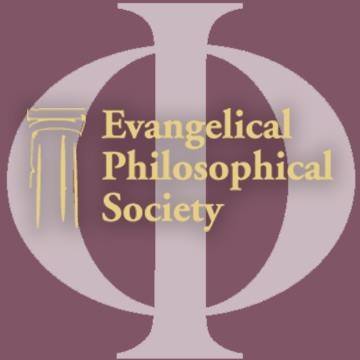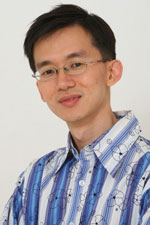
Dear Members of the EPS,
I was just reminiscing about the first time I attended an annual meeting of the Evangelical Philosophical Society. It was held in Colorado Springs, in 2001. I made the drive down with another student in my PhD program at the University of Colorado, Boulder. Four of us crammed into a hotel room to save money. I presented a paper on the argument from contingency, at the same time as William Lane Craig was speaking. I think 3 people attended my talk. At the time, the debate about open theism was raging. It was an interesting first conference, to be sure.
A lot has happened since that meeting in the EPS, the church, and the culture. One thing that has remained the same is the commitment of the EPS to our mission:
The mission of the Evangelical Philosophical Society is to glorify God through the faithful practice of philosophy, fostering a deeper understanding of God and the world he created while both encouraging and enabling Christian philosophers to engage philosophical and spiritual issues in the academy, church, and culture.
The work done by EPS members in our journal and online are important parts of our mission and vision, as are the various meetings and conferences we participate in beyond our annual meeting, such as the AAR, ETS, and APA. I’m grateful that we are a society not only of philosophers, but also scholars from related disciplines, pastors, apologists, campus ministers, and laypersons.
I would like to suggest one thing related to our mission and vision, and more importantly our faithfulness to Jesus, whoever we are and wherever we serve. We must be people of character. Not perfect people, but people of increasing Christlike goodness, “little Christs,” as C.S. Lewis so memorably put it. Our character, our relationships with family, friends, and those in our local church, the content and tone of our work and ministry, must exemplify not only boldness, as needed, but also grace, truth, humility, hope, and the fruit of the Spirit, among other things.
All of this is the fruit of life together with fellow Christians, and of a consistent practice of the spiritual disciplines we find most helpful. When platforms seem more important than principles, when the pursuit of likes on social media undermines our spiritual formation, when protecting our image is more prized than imitating Christ, staying true to our mission and cultivating moral and intellectual virtue in a transformational union with Christ are vital.
Just something to think about as the new academic year begins.
Institutional Journal Subscriptions
If your institution does not subscribe to our journal, please consider requesting that they do so. The Library Print Subscription rate is relatively low, as these things go. You can direct the person responsible for subscriptions here or via the Philosophy Documentation Center for digital only subscriptions (includes access to back issues since 1999!).
Executive Committee Nominations
Also be on the lookout for a call for nominations for new members of the EPS Executive Committee in early October for a vote to be held in late October/early November.
EPS Annual Meeting in San Antonio
I look forward to seeing many of you at our annual meeting this year, November 14-16 in San Antonio (see here for a program draft). It’s always good to see old friends, make new ones, and learn from one another as we follow the Way, together.
A few special events at the meeting to keep in mind as you plan:
EPS Reception
Tuesday 8:30pm – 10:00pm, Lone Star Ballroom Salon C.
EPS Plenary Address
C. Stephen Evans, “Should Christians Accept a Divine Command Theory of Moral Obligations?”
Wednesday 2:10 – 3:00pm, Grand Hyatt, 2nd Floor Lone Star Ballroom DEF
EPS Business Meeting
Thursday 9:45am – 10:45 am, Convention Center Rm. 303A.
Come here what the EPS is up to, share your own thoughts, etc.
Thanks for your work for Christ and his kingdom!
Sincerely,
Mike Austin
EPS President


 Last week, Stuart Cornelius Hackett (b. 1925)—a beloved philosophy professor, friend, and brother in Christ—departed this life to go where all true believers long to be. His mental brilliance, affected in his later years by Alzheimer’s, has been restored, and he is a now a clearer thinker than anytime during earthly days.
Last week, Stuart Cornelius Hackett (b. 1925)—a beloved philosophy professor, friend, and brother in Christ—departed this life to go where all true believers long to be. His mental brilliance, affected in his later years by Alzheimer’s, has been restored, and he is a now a clearer thinker than anytime during earthly days.



